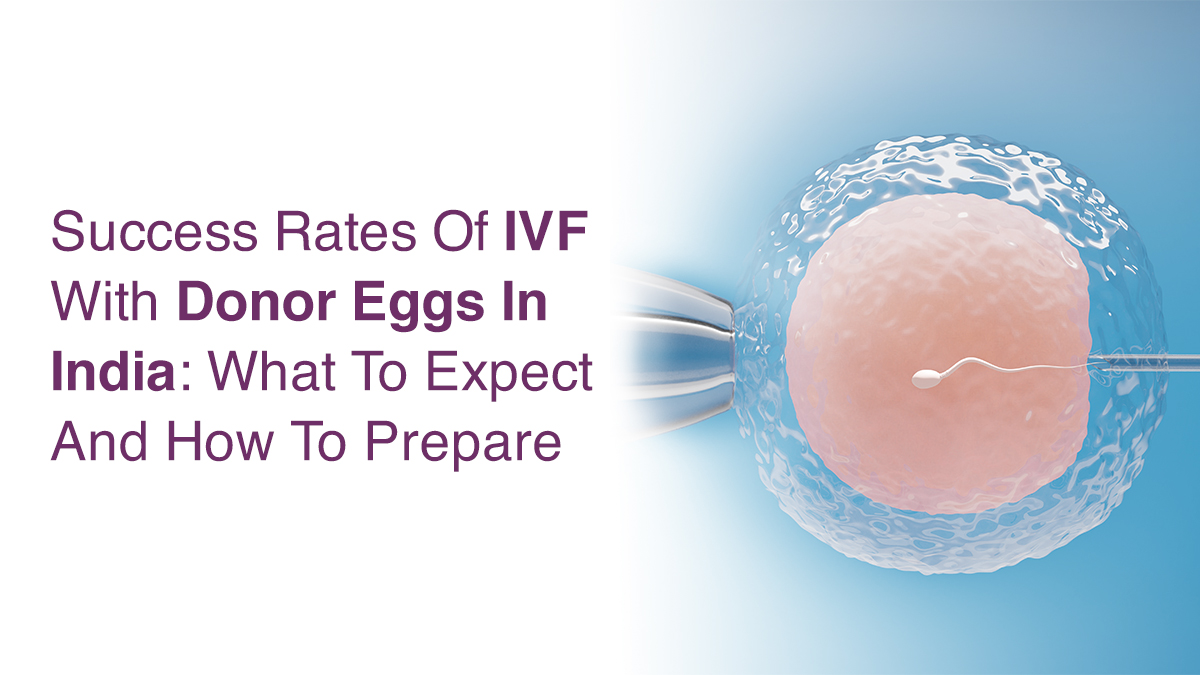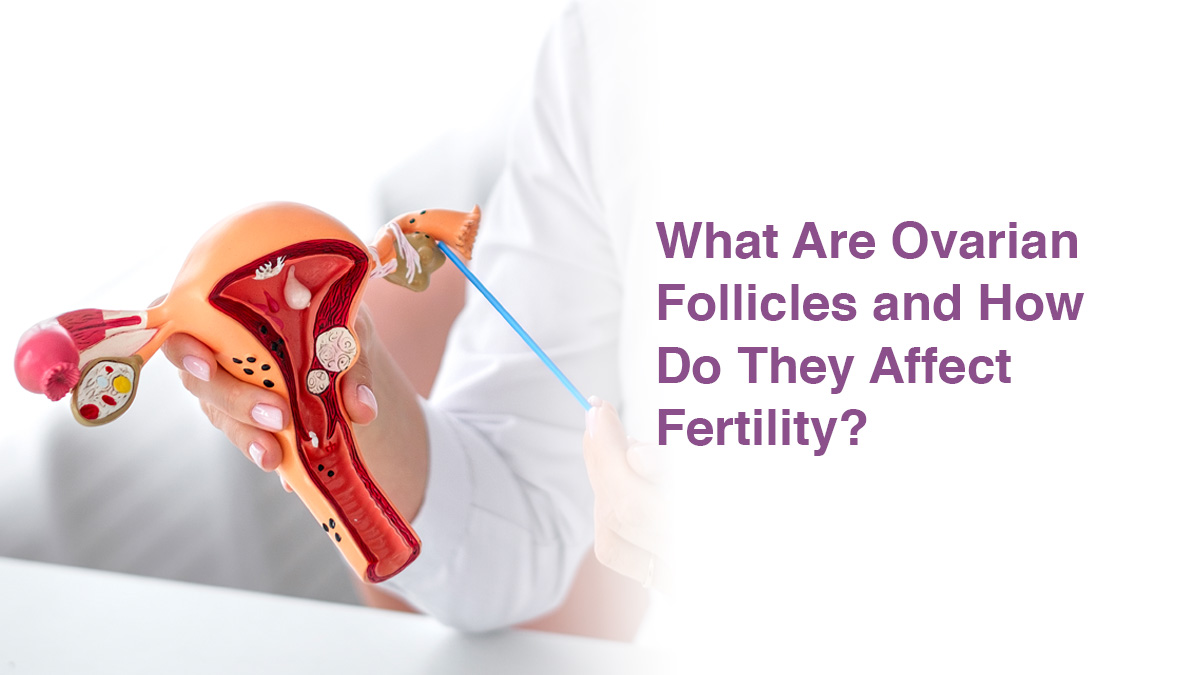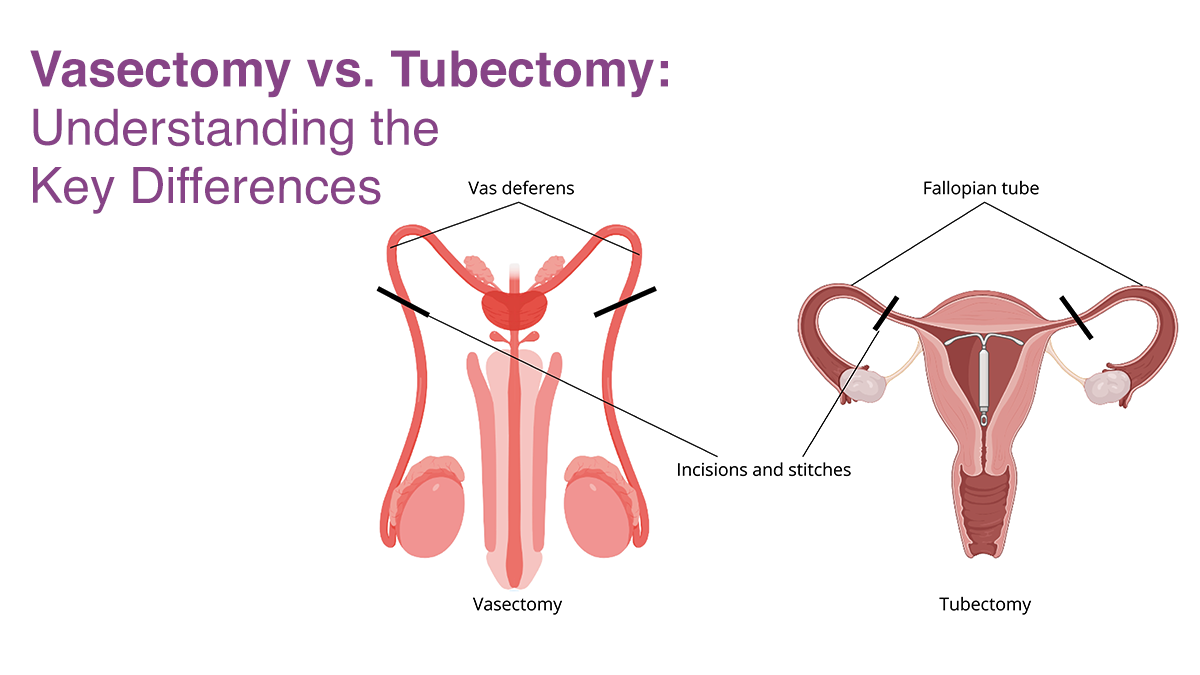
Success Rates of IVF With Donor Eggs in India: What to Expect and How to Prepare

Millions of couples struggle with infertility worldwide, which often prompts them to go for assisted reproductive technologies such as in vitro fertilisation (IVF). When natural conception is challenging, IVF offers a route to pregnancy by externally fertilising an egg with sperm. With the assistance of a donor, couples can become pregnant in certain situations where the woman’s eggs are viable. IVF and egg donation have become very popular as feasible options, with more and more Indians opting for them.
IVF donor eggs present a potential option for many aspirational parents looking to grow their families in the current fertility treatment landscape in India. This process tackles the underlying causes of infertility by giving access to healthy donor eggs, thereby providing people in need new hope and chances to become parents.
Why Use Donor Eggs in IVF?
The likelihood of becoming pregnant increases when donor eggs are used, especially for women over 35. Other influential factors include the success rates of the clinic, the donor’s egg quality, uterine health, sperm quality, and embryo quality. Using a donor’s egg has a greater likelihood of successful fertilisation, as per several studies. As you grow older, the rates of implantation decrease even more. IVF with donor eggs is typically recommended for women with low ovarian reserve, menopausal women, women with poor egg quality, or women who do not ovulate.
Success Rates of IVF with Donor Eggs in India
The demand for assisted reproductive technologies (ART), including IVF using donor eggs, has significantly increased in recent years. In India, according to research, the average donor egg IVF success rate is between 75% and 90% per embryo transfer, depending on several factors:
Recipient Age:
Thanks to a healthier uterine environment, younger recipients have greater success rates.
Donor Egg Quality:
The likelihood of a successful pregnancy increases when high-quality eggs from younger, healthy donors are used.
Sperm Quality:
The development and fertilisation of the embryo depend on high-quality sperm.
Uterine Health:
Impaired implantation and lower success rates might result from abnormalities of the uterus.
Embryo Quality:
The likelihood of implantation and pregnancy is higher for high-quality embryos.
Fertility Clinic Success Rates:
Due to differences in technology and experience, success rates differ throughout clinics.
Factors that Influence Success Rates
A number of variables affect the success rates of IVF with donor eggs including:
Age and Health of Donor:
Success rates are typically higher for younger donors who are in good health and have high-quality eggs. The best odds are usually offered by donors who are in their 20s to early 30s.
Health of the Recipient’s Uterus:
The recipient’s uterus is very important. A healthy uterine lining increases the likelihood of a successful pregnancy, but conditions like fibroids, polyps, or endometrial problems may impact the success of implantation.
Embryo Quality:
A major factor in the success of implantation is the quality of the embryos produced with the partner’s sperm and donor eggs. A healthy pregnancy is more likely to develop from higher-quality embryos.
Lifestyle and Health Factors: Lifestyle decisions, including drinking, smoking, and experiencing stress, can affect the results of IVF. The success rate is influenced by the general health and well-being of both couples.
IVF Clinic Expertise:
Success rates are influenced by the IVF clinic’s technology and experience. Success rates are generally greater in clinics with highly qualified doctors and cutting-edge methods.
Age of Recipient:
While age has no bearing on egg quality, women over 40 may have somewhat decreased success rates because of ageing-related reductions in fertility-related parameters.
Number of Embryos Transferred:
While transferring many embryos may occasionally improve the chances of success, it also increases the probability of multiple pregnancies, which may carry greater dangers.
What to Expect During the IVF Process with Donor Eggs
To guarantee high-quality eggs, the first step in the IVF donor egg process is choosing a good egg donor, usually someone who is young and healthy. Mature eggs are extracted from the donor through ovarian stimulation, and in a laboratory, they are fertilised with the recipient’s partner’s sperm or donor sperm to produce embryos. The recipient takes medicine in the interim to get her uterine lining ready for implantation. After developing, one or more of the embryos are placed in the recipient’s uterus in the hopes that they will implant and result in pregnancy. To confirm pregnancy, the procedure entails multiple check-ups, monitoring, and a two-week wait following embryo transfer.
How to Prepare for IVF with Donor Eggs?
Being emotionally and physically ready is essential while preparing for IVF using donor eggs. Physically, the recipient should concentrate on leading a healthy lifestyle, which includes eating a balanced diet, abstaining from alcohol and tobacco, controlling stress, and, according to any special medical instructions, taking prescription drugs to get the uterine lining ready for implantation. Getting enough sleep and exercising frequently can help improve general health. Having a network of friends, family, or a counsellor might help you cope emotionally with the pressures and expectations of IVF. Anxiety can decrease, and a more seamless experience can be achieved with financial planning and an understanding of how the procedure works.
When to Seek Medical Advice?
If you have continuous pain in your groin or testicles, or if you notice any odd changes in the size, shape, or feel of your testicles, you should consult a doctor. Seeking medical attention is also necessary for symptoms of hormone imbalance, such as exhaustion or decreased libido. Early assessment can preserve fertility and enhance results.
Conclusion
The donor egg IVF success rate does appear to be higher than IVF using one’s own eggs, as research suggests. Before zeroing in on any decision, make an appointment with the Oasis Fertility Clinic near you immediately to discuss with their fertility specialists to understand its pros and cons.


fill up the form to get a
Free Consultation
Avail 0% interest on EMI
All Procedures | No Upper Limit
Frequently Asked Questions
Is donor egg IVF more successful?
How long does IVF take with donor eggs?
Why does a donor egg IVF fail?
How we reviewed this article:
- Current Version
- December 4, 2024 by Oasis Fertility





